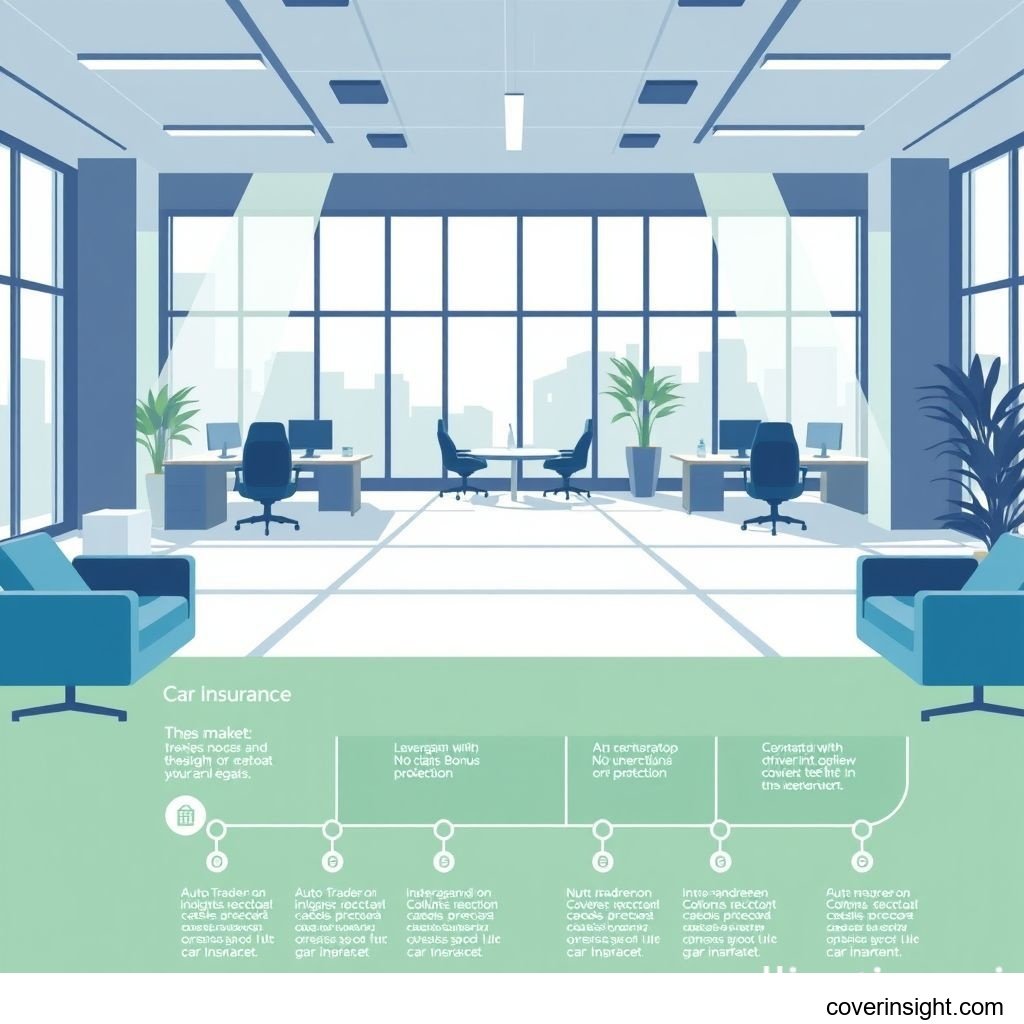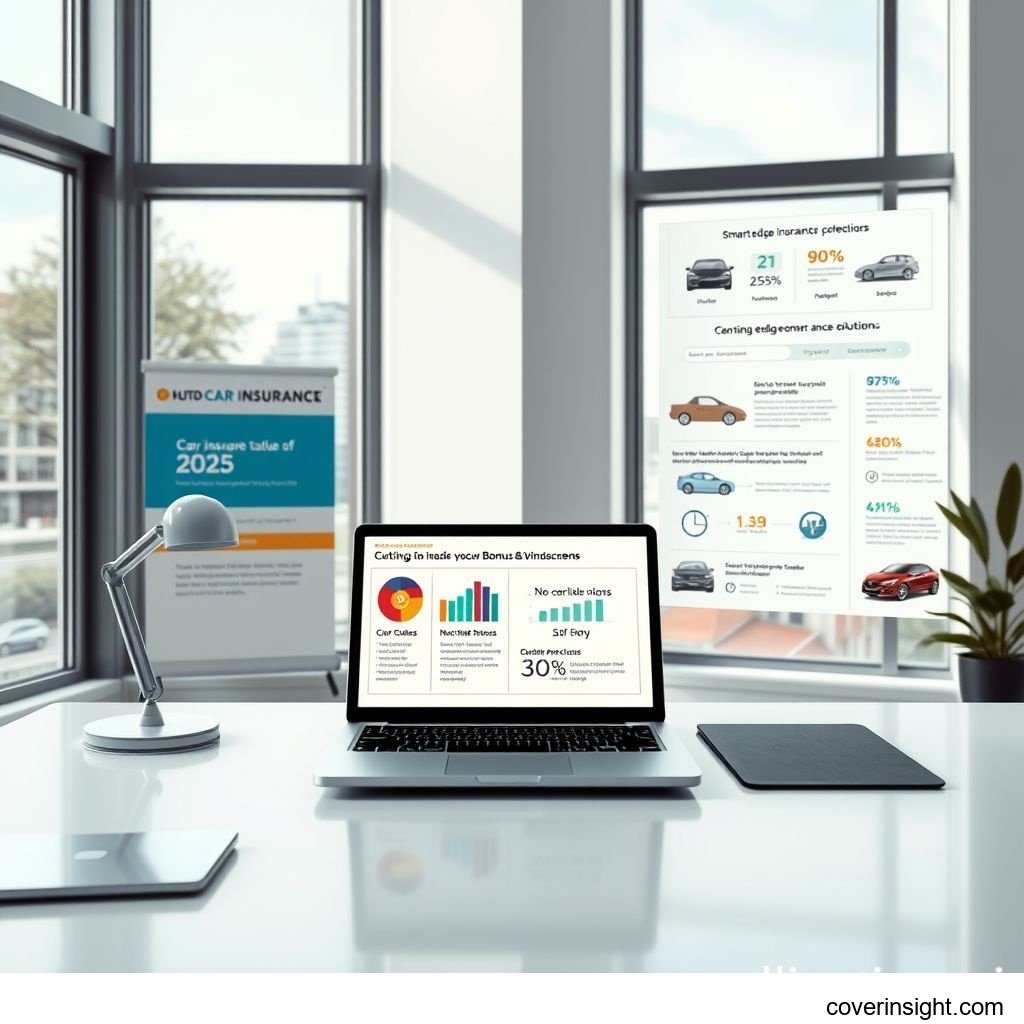Introduction
Securing the right car insurance in Great Britain for 2025 is more crucial than ever. With evolving regulations, a dynamic vehicle market, and new ways to compare options, drivers need smart strategies. This guide delves into everything from essential coverage to advanced savings techniques, including how platforms like Auto Trader can influence your search and the secrets behind maximising your No Claims Bonus (NCB). Understanding your car insurance policy is key to both compliance and financial prudence.
Coverage Details
Understanding the different types of car insurance available is the first step towards making an informed decision. Policies vary significantly, impacting both your level of protection and your premium.
What’s Included
UK car insurance policies generally fall into three main categories:
-
Third Party Only (TPO): This is the minimum legal requirement. It covers damage or injury you cause to other people, their vehicles, or their property. It does not cover any damage to your own vehicle if you are at fault for an accident.
-
Third Party, Fire and Theft (TPFT): This policy includes everything covered by TPO. Additionally, it provides cover for your own vehicle if it is stolen, or if it is damaged by fire. This is a popular middle-ground option for many drivers.
-
Comprehensive: This is the highest level of car insurance coverage. It includes everything in TPFT, plus it covers damage to your own vehicle even if you are at fault for an accident. Many comprehensive policies also include personal accident cover, medical expenses, and cover for damage to windscreens.
Choosing the right level of coverage depends on factors such as your vehicle's value, your budget, and your risk tolerance. It's essential to compare what each policy offers beyond the basic definitions.
Common Exclusions
While policies offer extensive coverage, certain situations are typically excluded, meaning your car insurance won't pay out. Being aware of these can prevent unexpected costs. Common exclusions include:
-
Unauthorised Drivers: If someone not listed on your policy drives your car and causes an accident.
-
Driving Under Influence: Accidents occurring while the driver is under the influence of alcohol or drugs.
-
Wear and Tear: Damage due to normal depreciation or mechanical breakdown, not an accident.
-
Racing or Off-Road Use: Engaging in competitive driving or using your vehicle off public roads.
-
Modifications: Significant alterations to your vehicle not declared to your insurer.
-
Theft with Keys Left in Car: If your vehicle is stolen because you left the keys easily accessible.
Always review the terms and conditions of your specific car insurance policy for a complete list of exclusions. A clear understanding helps avoid future disappointments.
Cost Analysis
The price of car insurance is not fixed; it fluctuates based on numerous variables. Understanding these factors can help you pinpoint areas where you might save.
Price Factors
Insurers assess a wide range of data points to calculate your car insurance premium. Key elements include:
-
Driver's Age and Experience: Younger, less experienced drivers typically pay more due to higher perceived risk.
-
Location: Urban areas with higher traffic density and crime rates often incur higher premiums.
-
Vehicle Type: The make, model, age, engine size, and security features of your car significantly influence cost. More powerful or luxury cars usually cost more to insure.
-
Driving History: A clean driving record, free from claims or driving convictions, generally leads to lower premiums.
-
No Claims Bonus (NCB): A crucial discount for claim-free driving, which can reduce premiums substantially over time.
-
Voluntary Excess: Agreeing to pay a higher voluntary excess can reduce your premium. However, ensure you can afford this amount if you need to make a claim.
-
Annual Mileage: Lower mileage often indicates less time on the road, potentially leading to lower risk and premiums.
-
Occupation: Certain professions are statistically considered lower risk by insurers.
-
Security Features: Immobilisers, alarms, and tracking devices can demonstrate reduced theft risk.
Each of these factors combines to create your unique car insurance quote. Insurers use complex algorithms to weigh them.
Saving Tips
Reducing your car insurance costs doesn't mean compromising on essential coverage. Smart strategies can lead to significant savings:
-
Increase Your Voluntary Excess: As mentioned, agreeing to pay more in the event of a claim reduces your premium.
-
Improve Car Security: Fitting an approved alarm or immobiliser can make your vehicle less attractive to thieves.
-
Reduce Annual Mileage: If you don't drive much, opting for a lower mileage limit can reduce your premium.
-
Consider a Black Box Policy: Telematics policies monitor your driving habits, potentially rewarding safe drivers with lower premiums.
-
Pay Annually: Paying your premium in one lump sum often avoids interest charges associated with monthly instalments.
-
Shop Around: Always compare quotes from multiple providers. Comparison websites are excellent tools for this.
-
Maintain a Good Driving Record: Avoiding claims and penalty points is the most effective long-term saving strategy.
-
Take an Advanced Driving Course: Some insurers offer discounts for recognised courses like Pass Plus.
-
Explore Multi-Car Discounts: If you have more than one vehicle in your household, bundling policies can lead to notable savings.
-
Combine Policies: Look for insurers who offer discounts when you combine your car insurance with other products like home insurance.
Auto Trader's Role in Car Insurance
Auto Trader, primarily known as a marketplace for buying and selling vehicles, plays an indirect but significant role in influencing your car insurance journey. It offers vital insights that can help you make informed choices.
Leveraging Auto Trader Data
When researching a vehicle on Auto Trader, you gain access to a wealth of data that directly impacts car insurance costs. This includes:
-
Vehicle Specifications: Engine size, fuel type, safety ratings, and security features are all listed. These attributes are key determinants of car insurance premiums.
-
Market Value: Auto Trader provides tools to estimate a car's current market value. Knowing this helps you determine the appropriate level of comprehensive coverage. Over-insuring or under-insuring your vehicle can lead to inefficiencies.
-
Popularity and Parts Availability: Certain popular models may have cheaper parts or be easier to repair, potentially leading to lower premiums. Conversely, rare or high-performance vehicles might cost more to insure due to expensive parts or specialised labour.
Using Auto Trader to thoroughly research your potential vehicle empowers you to anticipate car insurance costs. It helps in making a holistic decision, considering not just the purchase price but also ongoing running costs, including annual premiums.
No Claims Bonus (NCB) Secrets
The No Claims Bonus (NCB), often referred to as a No Claims Discount (NCD), is arguably the most powerful tool for reducing your car insurance premiums. It rewards you for safe, claim-free driving.
Maximising Your NCB
A No Claims Bonus is essentially a discount awarded for each year you drive without making a claim on your car insurance policy. The discount accumulates annually, potentially reaching up to 60-80% after five years or more. Here's how to make the most of it:
-
Protect Your NCB: After accumulating a significant NCB (typically 4+ years), many insurers offer NCB protection. For an additional fee, this add-on allows you to make one or two claims without losing your entire discount. It's a popular choice for those with a substantial NCB.
-
Understand Its Transferability: Your NCB is usually transferable between insurers. When switching providers, your new insurer will ask for proof of your previous NCB from your last provider.
-
Named Driver NCB: Some insurers allow named drivers on a policy to build their own NCB, provided they meet certain criteria (e.g., minimum age, no claims). This is less common but worth investigating if you're a regular named driver.
-
Avoiding Small Claims: Sometimes, for minor damage, paying for repairs out of pocket rather than claiming on your car insurance can be more cost-effective in the long run. Even a small claim can impact your NCB for several years.
Strategic management of your NCB is vital for long-term car insurance savings.
Beyond Standard Policies: Add-ons and Discounts
While core coverage is essential, understanding the various add-ons and potential discounts can significantly tailor your car insurance policy to your specific needs and budget.
Understanding Breakdown Cover Bundles
Breakdown cover bundles are a common and highly valuable add-on to car insurance policies. They offer roadside assistance if your vehicle breaks down. Different levels of cover are available:
-
Roadside Assistance: Basic cover, typically for breakdowns a certain distance from your home.
-
At Home Cover: Extends roadside assistance to your home address.
-
National Recovery: If your vehicle cannot be fixed at the roadside, it will be transported to a garage or your chosen destination.
-
Onward Travel: Provides alternative transport (e.g., hire car, public transport, overnight accommodation) if your vehicle cannot be fixed quickly.
Bundling breakdown cover with your car insurance can often be more cost-effective than purchasing it separately. Always compare the features and price of these breakdown cover bundles to ensure they meet your needs. Some insurers also offer European breakdown cover as an extended option.
Exploring Multi-Car Discounts
For households with multiple vehicles, multi-car discounts represent a significant opportunity for savings. Instead of insuring each car separately, a multi-car policy allows you to cover all vehicles under one umbrella, often resulting in a reduced premium per vehicle.
-
How They Work: Insurers typically offer a percentage discount on each vehicle when they are insured together. This streamlines administration and often leads to lower overall costs.
-
Benefits:
-
Cost Savings: The primary advantage is the reduced premium.
-
Convenience: One renewal date, one set of policy documents, and easier management.
-
Consolidate NCB: While each car usually maintains its own NCB, managing it under one insurer can simplify future renewals.
-
-
Eligibility: Most multi-car discounts require all vehicles to be registered at the same address. Some insurers may also require all drivers to be immediate family members.
Always check whether a dedicated multi-car policy or separate policies with the same insurer (if they offer a multi-policy discount) provides the best value. It's a smart way for families to optimise their car insurance expenses.
FAQs
Here are some frequently asked questions about car insurance in the UK.
How much does car insurance cost?
The cost of car insurance varies widely. In 2025, average premiums depend on factors such as driver age, location, vehicle type, driving history, and the chosen level of cover. It can range from a few hundred pounds to several thousand annually, particularly for young drivers or high-risk vehicles. The best way to determine your cost is to get personalised quotes.
What affects premiums?
Many variables influence car insurance premiums. Key factors include your age, occupation, where you live, the car you drive, your driving history (including any claims or convictions), your No Claims Bonus (NCB), and the excess you choose. Security features and annual mileage also play a significant role.
Is it mandatory?
Yes, by law, it is mandatory to have at least Third Party Only car insurance to drive a vehicle on public roads in Great Britain. Driving without valid insurance is a serious offence, carrying severe penalties including fines, penalty points, and potential disqualification.
How to choose?
Choosing the right car insurance involves balancing cost, coverage, and customer service. Start by assessing your needs: what level of cover do you require? Then, compare quotes from various insurers using comparison sites and direct approaches. Look at policy inclusions, exclusions, excess levels, and read reviews for customer satisfaction. Consider how breakdown cover bundles or multi-car discounts might fit your situation.
Consequences of no coverage?
Driving without valid car insurance in the UK carries severe consequences. You could face a fixed penalty of £300 and 6 penalty points, even if the case doesn't go to court. If it does, you could receive an unlimited fine and be disqualified from driving. Your vehicle could also be seized and, in some cases, destroyed. It's simply not worth the risk.








Comments